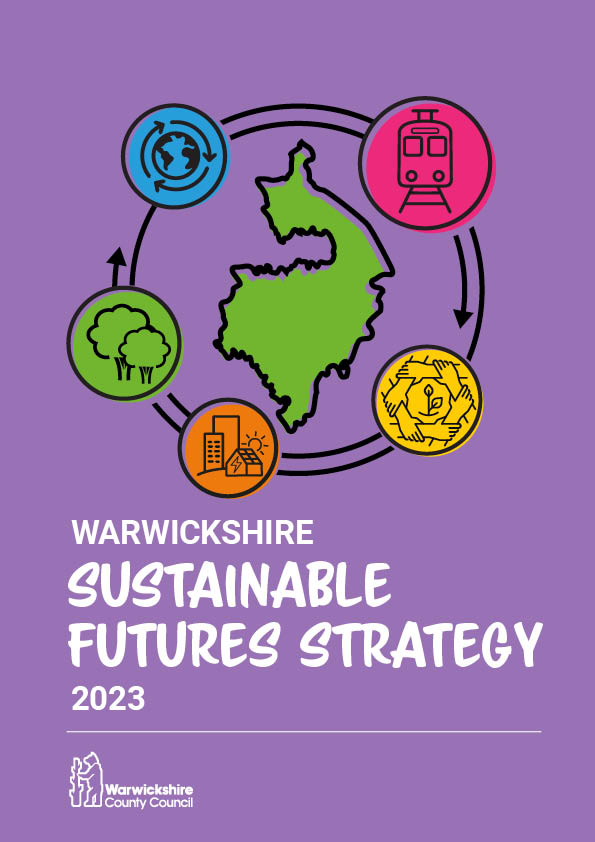
An introduction
The WCC Sustainable Futures Strategy sets out a framework, key actions and enablers for delivering the strategic priority of being a county with a sustainable future. This means adapting to and mitigating against climate change, reducing our carbon emissions to net zero across the Council by 2030 and supporting Warwickshire as a county to do the same by 2050 or earlier. It also means creating a sustainable environment aligned with other council priorities that include education, sustainable economic growth, improved transport and infrastructure, health and wellbeing.
Between 2005 and 2021, carbon emissions in Warwickshire reduced by 23% to 5,499,000 tonnes of CO2e. Transport and industry are our two largest sources of emissions, now representing 38% and 31% of the total respectively, having remained largely static over this period. Meanwhile, emissions from domestic settings and commercial buildings have been steadily declining.
Council-related activities currently account for 18,245 tonnes of CO2e, having reduced by 63% between 2014 and 2020. To meet our net zero commitment, our emissions will need to reduce by another 29% by 2026 and 46% by 2030. The largest falls are likely to be in our transport and building use. In both cases, we expect there to be residual emissions, which we will look to balance through nature-based or other forms of greenhouse gas removals.
Our strategy (PDF, 1MB) and actions (PDF, 137 KB) have been created to establish a clear pathway towards these goals. It is organised around five delivery themes, each focusing on an area where we are best able to make a difference:
- Transport
- Built environment and energy
- Resources, waste and material recirculation
- Sustainable communities and green economy
- Natural capital and biodiversity.
Critical to our success will be how we deliver our ambitions. This will include effective change management, changed behaviours, accountable governance, adequate resource, the right policies, and appropriate engagement.
Substantial financial investment will also be required to reduce carbon from our operations, and we recognise the need to be creative in our ability to invest and fund sustainable solutions.
Finally, partnership working will be vital to the key elements of this Strategy such as realising the net zero vision, contributing to Levelling Up and enhancing prosperity across the county. We will therefore work together with our public, private and voluntary sector partners on projects and external funding applications, providing the benefit of collaboration and shared outcomes across boundaries and organisations.
 Sustainable Warwickshire
Sustainable Warwickshire
 Sustainable Warwickshire
Sustainable Warwickshire